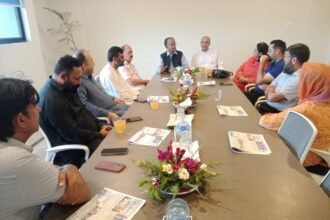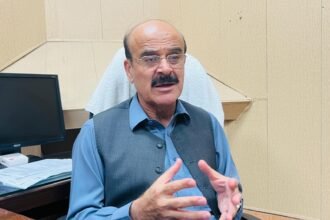Our Correspondent
Sawabi: Decline in Academic Standards Due to Departure of PhD Faculty and Contract Employees Women University Swabi has witnessed a significant decrease in the number of its PhD faculty members, which is raising concerns about the declining academic standards at the institution. Two years ago, the university had around seventy PhD faculty members, but now this number has dwindled to just thirty.
According to sources, the university, which was established in 2016, has yet to conduct a single selection board meeting, resulting in a growing sense of disappointment among the faculty members. They are constantly worried about the renewal of their six-month or one-year contracts and are not given representation in any decision-making bodies. Due to political interference and unnecessary restrictions imposed by the government, competent faculty members continue to leave the university.
The presence of contract-based employees has only allowed for a single MPhil batch to be offered in various departments, even though the Higher Education Commission (HEC) has granted NOCs for several programs. However, due to the instability caused by contract employment, MPhil programs are not being initiated, dashing the hopes of many students who aspire to pursue higher education. Dozens of students approach the university for MPhil admissions, but they are met with disappointment.
For the past two years, the university has been functioning without a permanent Vice-Chancellor, making it impossible to implement major initiatives. The university’s faculty has not received any projects from HEC, further limiting opportunities for institutional growth.
Currently, only thirty PhD faculty members are serving in various departments compared to the seventy members two years ago. This exodus has resulted in a shortage of MPhil faculty, and the university is forced to rely on individuals with BS or Master’s qualifications to fill the teaching positions.
The university administration and the government need to take immediate action to address this situation, ensuring that academic standards are maintained and that students are provided with quality educational opportunities.










